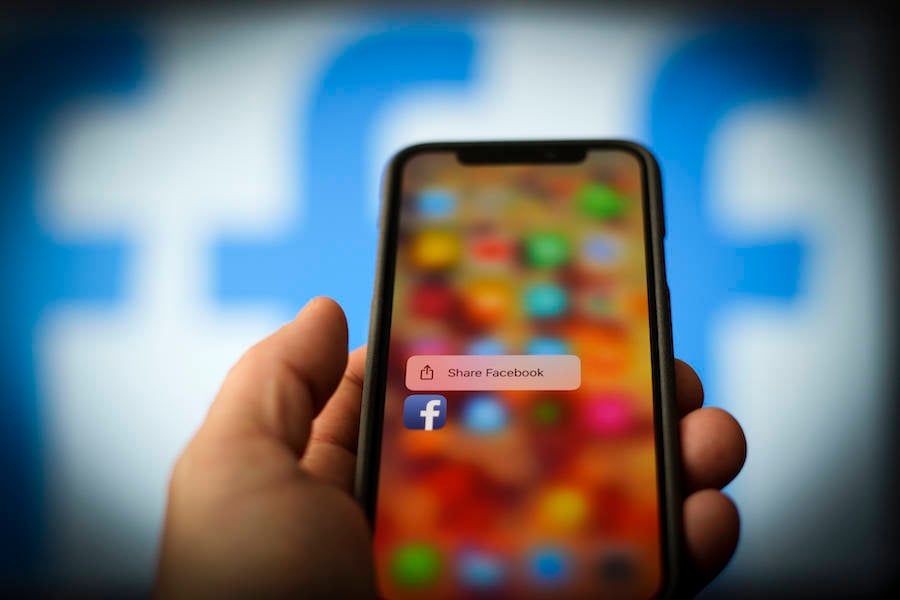According to the study’s predictions, 1.4 billion Facebook users will have died before the year 2100, leaving precious personal data behind.
Jaap Arriens / NurPhotoThe study brings up honorable considerations about what to do with one ’s personal data once they die .
If you use the net even a little bit , you in all probability have digital footmark everywhere , some of which are probably in the form of personal profiles on societal medium . But what happens to all these footprints of personal information after you die ?
A new study , which discovered that within 50 years there may be more dead substance abuser on Facebook than there are dwell , has brought fervor to this discussion on how we can mindfully preserve the data of the deceased .

Jaap Arriens/NurPhotoThe study brings up ethical considerations about what to do with one’s personal data once they die.
The study , which waspublishedin theBig Data and Societyjournal , estimated that the bit of dead Facebook user could grow as high as 4.9 billion before the last of the 100 .
“ These statistic give wage hike to raw and unmanageable question around who has the right wing to all this information , how should it be managed in the best interests of the families and booster of the deceased and its usage by future historians to empathize the past , ” said Carl Öhman , a doctorial candidate at the Oxford Internet Institute ( OII ) and the lead writer of the paper .
Facebook ’s current procedure in handling the profiles of the deceased is to allow the family members to memorialize these pages through a wide-eyed check process as they see fit . What ’s more , Facebook has also changed some of its features to verify that the gone would not show up as a suggested invite nor would their ally be cue of their birthday .

Amy Osborne/AFP/Getty ImagesFacebook CEO Mark Zuckerberg delivers the opening address in introducing new privacy features at a conference.
Other friend and familiarity of the deceased can also share store from their own timelines or allow for special tribute to the asleep ’s page . In other Word , even after the soul is gone , their visibility can proceed to live on which means that by extension , so will their personal data .
research worker at OII came up with the estimated number of dead users using data give to them by the United Nations . This data include an expected number of mortality rate and full population for each country in the humanity , as well as entropy taken from Facebook ’s Audience insight sport .
All this information bring out that some 1.4 billion Facebook user will have died before the year 2100 . In that event , if user tier remain the same as they were in 2018 , then the total number of deceased members could outpace the life by as early as 2070 .
Amy Osborne / AFP / Getty ImagesFacebook CEO Mark Zuckerberg bear the orifice address in acquaint unexampled privacy features at a group discussion .
The survey goes on to state that the incredibly high number of stagnant users on Facebook will leave behind a plethora of saved on the site ’s host , which “ will have grave conditional relation for how we treat our digital inheritance in the future . ”
David Watson , the analysis ’ carbon monoxide gas - author , described this data as a “ vast archive of human behavior and acculturation ” and argued that it should not be left in the hands of a for - net profit company . Watson added that it is important for future generations to be capable to use this abandoned information as a record of our society ’s past and as a way to better empathize our story .
“ This is not just about find solutions that will be sustainable for the next twosome of years , but possibly for many tenner beforehand , ” Watson said .
Thus , the Oxford investigator has urged the digital titan to work with experts like archivists , historians , ethicists , and even archaeologists , so that they can “ take part in the process of curating the Brobdingnagian volume of accumulate data ” left behind by asleep exploiter .
Globally , Facebook now has 1.56 billionactiveusers day by day . This is number has increased by two percent since last twelvemonth ’s fourth quarter alone .
This makes the platform one of — if notthe — largest social media electronic connection in the domain . So the question of how it harvests user data point especially when that somebody no longer exists is an important one to work out out .
Even outside of these ethical dilemmas regarding user information , Facebook has already been hit with a number of complicated issues , likebanninghate speech communication and thespreadof fake news show on its site .
The answer to the interrogation pose by the Oxford study remains to be seen as we scramble to cypher out how to protect our information in an ever - digitized world .
Next , study about the enquiry that showshow most citizenry ca n’t know or spell the lowercase “ G ” missive . Then , read about thestudy that indicate neurotic multitude live longer than others .